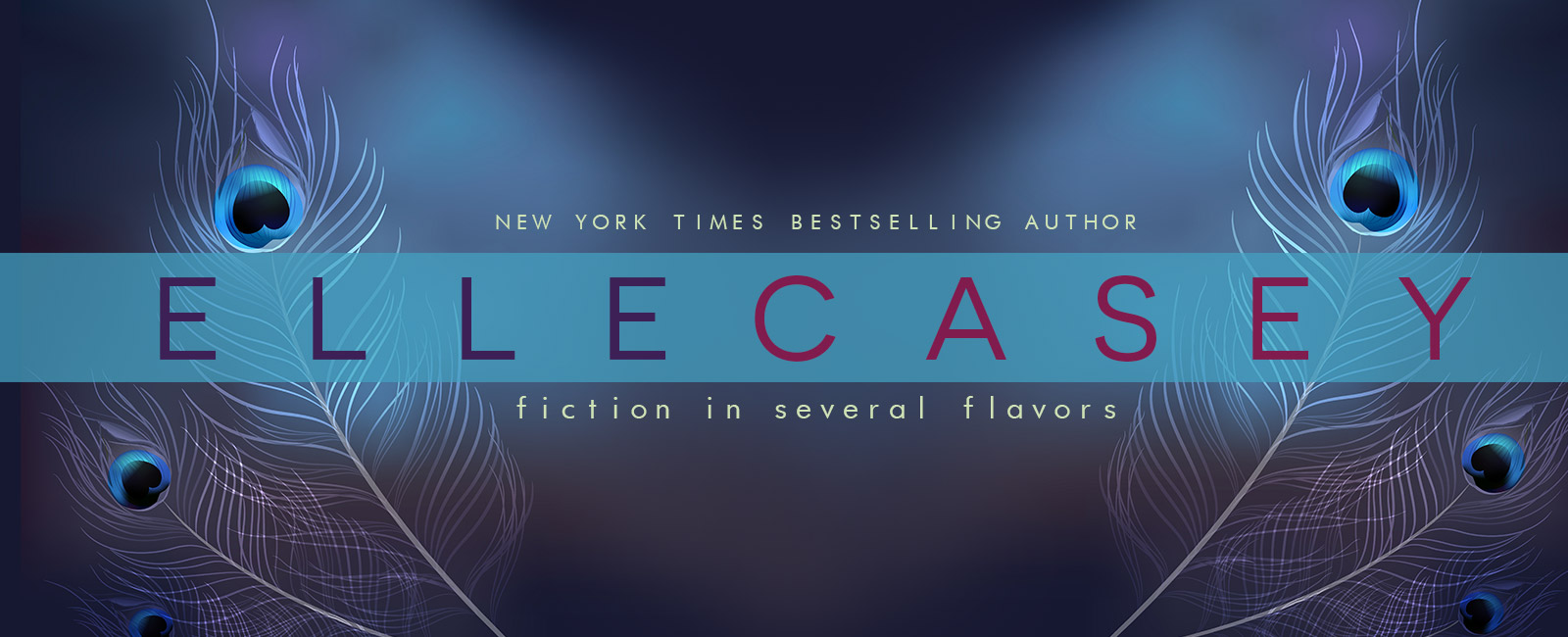I haven't gotten up on my soapbox in a long time, mostly because every time I do, trolls come after me online, but oh well. Sometimes the need to express myself outweighs the strength of my self-preservation instinct LOL. Here's my latest opinion piece about the reading and publishing communities. >> WARNING: Grab some popcorn because this is long. But I hope you read the whole thing because it's important. FIRST, I talk about great authors disappearing and SECOND I talk about a very disturbing trend in the publishing market with regard to Amazon.
GREAT AUTHORS DISAPPEARING THEMSELVES
I read a long post from Cassia Leo (an author who writes really fun, very emotional, original romance novels) about how she's going to kill her pen name and start her career anew with another one and not tell any of her old fans what that new name is.
Does that sound crazy to you? It does to me because I know how much work it takes to build a fan-base; but I DO understand what has motivated her to do this, and I wanted to share those thoughts with you because they concern us all, readers and writers alike. Not only are we talking about author/reader relations but also Amazon and its pricing and promotional strategies and how they're affecting your reading experience in a negative way.
Cassia spends a HUGE amount of time online talking with her fans. I mean, literally talking to them live in chat rooms, on Facebook walls, on online events, and by private message. She does a TON of promotions, often discounting the price of her books to 99¢ or FREE for long periods of time.
She has done this discounting so much, in fact, that now many of her readers have decided that they're never going to pay regular price for her work. Some have actually verbally attacked her for daring to price her books at $3.99 — which in case you didn't know, is still often less than HALF the price of traditionally-published ebooks. Cassia is a single mom who also takes care of an elderly ailing parent. She supports her family solely with her writing income.
Cassia's books have made it to all the bestseller lists. She regularly launches a new book and has it zoom right to the top of the charts with amazing reviews from readers. She writes well, and readers love her stories. So why is she getting attacked?
The lesson that Cassia has learned, and that I learned a while back, is that if you try to be all things to all people, there is a group of readers who will start to get angry at you when you fail at that, and they will attack you. And you WILL fail at pleasing everyone all the time; it's just not possible.
Being a writer, having readers attack you –people who you bend over backwards to treat like gold — is soul-crushing. It makes it impossible to write anymore. It makes you want to run away and never come back, which is what Cassia is going to do, in a way.
Writers work in the business of creation. Creators put a piece of themselves into everything they create. Most of us have worked 9-5 jobs before becoming authors, and it's true to say that writing books is not like other jobs. Each book or short story or whatever ends up holding a piece of US inside it, every time; it's a very personal thing.
We will sometimes discount the price of that very personal creation to raise awareness of it and hopefully get wider distribution of it. That's the necessary business end of things. We need readers to be successful! (duh) Maybe you didn't realize this, but just in case there's a misconception out there, I'm going to clarify one point: Indie authors don't EVER discount the price of their work because they think it's not worth the full retail price.
We price our creations (books in this case, but also music, works of art, etc.) at what we consider to be a fair level, and occasionally lower the price to help sell more of them to more readers. Do we have to do this? No. As indie authors, we are in charge of our pricing. Is it nice for readers when we do this? Sure. Everyone has a book budget, and it's nice when it can stretch further. Can we afford to do it all the time? No. Absolutely not. And here's why you shouldn't expect us to:
When writers can't afford to support themselves as writers, they have to stop writing.
It's as simple as that.
The question to ask yourself as a consumer of books is this: Do you want to have great books available to read? Sure you do. There's nothing more annoying than sitting down with what you hope is a great book and realize you bought a total stinker. That's wasted time you'll never get back, and time is very precious to all of us.
As a reader who wants to read great books, it behooves you to support the authors who write books you love, so you can have more of them in the future. And when I say “support” I mean not just online on their fan pages, but financially … by buying their books.
The number one way you can support your favorite authors is to NOT PIRATE EBOOKS. It's sickening for a writer to go on a pirate site and see her books being stolen to the tune of hundreds of copies an hour, knowing she'll never see a single penny of royalties for those downloads. It's ridiculous to me and any thinking, rational person that readers who wouldn't dream of shoplifting from their local grocery store would happily steal ebooks from writers. Pirating is stealing. There's no way around that fact. If you pirate books, you're stealing from an author who you obviously otherwise admire. Crazy, right?
People who steal ebooks are selfish, obviously, and in being selfish they end up hurting not just themselves, but the writer they like and all her other readers. My own writing schedule has slowed way down as a result of the disappointment I've experienced seeing pirates steal from me. That means less books for my fans. How is that right or fair to the reading community?
The other way readers can support their favorite authors is to be respectful. Fan-girling is cool, but when it turns ugly, it turns really ugly. Demanding that someone lower their prices or send you a free book because you think you deserve it is being disrespectful and downright rude. (yes, people do this) Threatening to leave bad reviews if the books aren't priced how you think they should be priced is blackmail and awful.(yes, people do this too) If you don't like the price of a book, just don't buy it. There's no need to go on the warpath over it. Readers should vote with their dollars not their inner mean-girl.
I know most readers wouldn't dream of doing these kinds of things ^^; it's the bad apples that spoil the whole barrel of good ones. But sometimes even good people get carried away, especially when they can live in the anonymity of the online world, free of witnesses. You'd be surprised how many of my true fans have stolen ebooks from me on pirate sites and thought nothing of it. I've received some apologies by email, so I know this happens.
I know that online social media makes it seem like we all need to be personally connected all the time, but the truth is, it's the stories that matter. You read to escape everyday life. Being online constantly with thousands of readers doesn't leave a whole lot of stress-free time for writing or just living. I love being online with my readers, but I've had to learn how to temper that with time for family and time for writing too. So if your favorite author isn't always available to you, please don't punish her for that. We're people too, with families, with responsibilities to those people and others, and we have a full time job trying to create, from nothing, new worlds filled with interesting people with exciting lives.
A RACE TO THE BOTTOM
Last, I'm going to send out a dire warning to the entire book-reading community. I hope I'm wrong about all of this, but I'm pretty sure I'm not. I've been an indie author for almost 3 years now, with several bestsellers and lots of time spent studying the numbers. I see lots of changes coming very fast that I think will end up hurting us all, writers and readers alike.
Amazon, a company I love to work with and respect very highly, has engaged in a race to the bottom of ebook pricing with several other online retailers and subscription service providers. As a result of their campaign to offer the lowest prices anywhere, the average price of books has gradually gone lower and lower, to the point now that many readers expect all books to be 99¢ or free.
Is this good for readers? On the surface, sure. It's awesome. You can now buy ten books instead of just one. What could possibly be wrong with that? Well, let me tell you…
Have you noticed that the quality of the books has gone down while the quantity has gone up? Because I sure have. And I'll tell you why I think that's happening, and why it's happening at a very accelerated pace right now:
Amazon has this new deal, where if an author joins their subscription service with a 99¢ book, and someone who subscribes to that service downloads that book, the author will earn $2.00 in royalties.
Say whaaaat? Yes, it's true. You'll have to ask the number-crunchers how this equates into a good idea financially for Amazon (who incidentally sells a lot more than just books, so if you save money on books, I guess you have more money to buy other products from Amazon, right? — so they don't necessarily lose out) but for now, let's just forget their profitability. Let's look at the authors involved.
If you're a writer of quality material, you're generally not writing 99¢ books, unless they're just serials or short-stories or on a special promotion (like first book in a series, or temporary sale to increase readership). A good writer can get $4.99 or more for her work without too much trouble, and that's a fair price: $4.99 for many hours of entertainment is way cheaper than a 2-hour movie.
But a writer who can't write well or who is happy writing little short stories can churn out all kinds of stuff at 99¢ and then make a killing with this new Amazon deal. All they need is a download, not even a full reading of the book!
Did you know that great authors, people with thousands of genuine 5-star reviews, are talking about taking full novels and breaking them up into pieces and selling them at 99¢ per piece so they can continue to earn a fair royalty? Yeah. That's how bad it's gotten. Authors who want to continue to be authors have to be survivors too. When Amazon does something like this, we have to adapt, and unfortunately, everyone loses (everyone but Amazon, actually).
So what kind of material are YOU seeing online? Have you seen quality go down and quantity go up? Do you find it harder and harder to find books you like? If you answered YES, well, you're not alone. That's all about the race to the bottom.
Think about it: If you pay 99¢ or less for a book and it sucks, you don't get too bent out of shape over it. You move on. But if you pay $4.99 for a book and it sucks, well, you definitely have something to say about that. So when books are priced higher, writers have to respond by either upping their game and writing quality material or stopping writing altogether. Bad writing at $4.99 is not a sustainable model. Bad writing at 99¢ is. We're seeing that now, thanks to Amazon.
So I'm asking you this: which is better for the readers? A glut of crappy books that may or may not be worth what you pay for them, or a system of pay that rewards good writing and punishes bad writing?
I'm no finance wizard, but I AM a voracious reader, and I can tell you right now I'd rather spend $5 on one awesome book than 99¢, 5 times on 5 crappy books that pay some not-so-talented writers $10. Call me crazy.
I'm going to (finally) finish this piece by saying that I LOVE AMAZON. Without Amazon, I wouldn't be living as a writer. Amazon has changed not only my life but the book-reading experience forever, and mostly in a very good way. And the people who work there are always coming up with new things to improve the customer experience. Sometimes they get it really right, and sometimes they get it really wrong, but at least they're trying.
But, it's important to remember that Amazon is not a person; it's a business — a business struggling to remain profitable. Amazon knows that to be the #1 online retailer, it needs sales. Sales of ANYTHING, not just books. So if books become a loss-leader for them, where they basically give them away for free or it costs them money to “sell” them, but consumers spend more time on the site and buy more things, they'll do that. I think this race to the bottom is a very short-sighted plan, causing good writers to disappear, but hey, like I said, I'm no finance wiz. All I know is that as my income drops, I have to come up with a plan for myself and my readers that will keep me writing and them buying my books.



